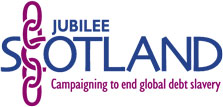
|
World Bank & IMF Annual Meetings Round-Up
The World’s Finance Ministers meet in Washington this week for the annual meetings of the World Bank and International Monetary Fund (IMF), where they will decide the fate of the unprecedented proposal set forth by the G8 in July on debt cancellation. In the run up to the meetings, there had been severe reservations by a group of non-G8 countries led by Belgium and Netherlands about the lack of funding the G8 had put forward for the deal made in July. The World Bank also questioned when finance would be provided to balance the World Bank’s books and ensure their ability to make new loans to developing countries. As the deal stands, the World Bank, IMF and African Development Fund will pay the debts owed by 18 recipient countries but will use the money earmarked for other development loans to do so. The World Bank therefore was insistent that the G8 reimbursed them with the exact amount “dollar for dollar”. At the heart of the matter is the fact that financial commitments by donors to the World Bank and IMF are not always forthcoming, as they are not legally bound to do so. However, after considerable pressure from people all over the world, the World Bank as well as a go-ahead by the IMF, the G8 with their joint letter of commitment staved off any would-be disastrous delays on the deal. The latest Jubilee Scotland campaign has highlighted that no debts were cancelled because of the G8 deal. Implementation by the World Bank and IMF and thereby real progress on the issue is a credit to those who kept the pressure on. Today
the world can take satisfaction that this deal has survived a difficult
test in its implementation. It is also noteworthy that no new conditions
have been attached to the deal and that the World Bank are keen
for more countries to be classified as Heavily Indebted and therefore
open to benefit from full bilateral and now multilateral debt. However
this debt relief is still conditional on implementation of unjust
and enforced economic policies such as privatisation that are far
from country-owned. The HIPC initiative is intrinsically flawed
and as long as it continues to be the prism by which debt relief
is viewed, questions and challenges remain. |
© 2006 Jubilee Scotland
Last modified 13-Apr-2007
 After
a nerve-racking couple of months, the World Bank and IMF have passed
the G8 debt deal at their annual meetings this weekend in Washington.
Critics of the deal were silenced when the G7 finance ministers,
in an unprecedented move, sent a joint letter of commitment assuring
the World Bank that finance would be provided in the long term for
the deal.
After
a nerve-racking couple of months, the World Bank and IMF have passed
the G8 debt deal at their annual meetings this weekend in Washington.
Critics of the deal were silenced when the G7 finance ministers,
in an unprecedented move, sent a joint letter of commitment assuring
the World Bank that finance would be provided in the long term for
the deal.